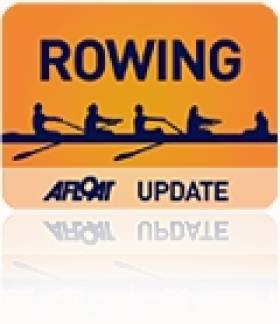Displaying items by tag: Fauvel
UCD Push NUIG/Grainne Mhaol Hard at Cork Rowing Regatta
#ROWING: Gráinne Mhaol/NUIG were pushed hard by UCD, but came away with the Division One eights title at Cork Grand League Regatta at the National Rowing Centre. NUIG came in third, despite having to do without the services of Kevin Neville, who had fallen ill during the heats. The experienced Gráinne Mhaol crew of Dave Mannion, Alan Martin, Cormac Folan and James Wall won the Division One four, while Skibbereen won the women’s four.
Andy Harrington of UCC won the Division One single sculls from Eimantas Grigalius of Three Castles and Fergus Fauvel, a New Zealander studying in Galway. Fauvel also rowed at number four for the winning eight.
Catríona Jennings of Commercial, who only took up rowing in the past two years after competing as a runner at the Olympic Games, won the Division One single sculls.
The timing system at the regatta, a bugbear at a number of Grand League events, caused some difficulties.
























































